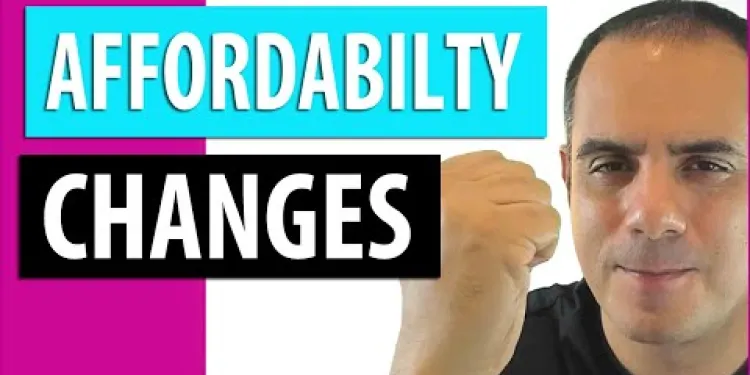Find A Professional
More Items From Ergsy search
-

Bridging Finance Dangers - Tips on common problems, risks and lending rules in the UK
Relevance: 100%
-

First Time Buyer Buy to Let Finance Options. Lending Criteria on Mortgage and Bridging Finance
Relevance: 65%
-

What are the risk factors for bowel cancer?
Relevance: 62%
-

Divorce Step By Step - Form E - Capital
Relevance: 59%
-

UK Mortgage Rules Lenders Don't Talk About - Debt To Income Ratio
Relevance: 57%
-

First Time Buyer Buy to Let Finance Options. Lending Criteria on Mortgage and Bridging Finance
Relevance: 56%
-

Can unexpected calendar events be a sign of a hacked email?
Relevance: 54%
-

What lifestyle changes can help lower the risk of bowel cancer?
Relevance: 48%
-

Ultimate Guide to Financial Disclosure on Divorce in the UK
Relevance: 48%
-

The 4 Steps to Agree a Financial Settlement on Divorce UK
Relevance: 48%
-

Who is at risk for severe illness from West Nile Virus?
Relevance: 48%
-

HMO Mortgage Truths - how to get the best Finance option including Bridging Loan Criteria
Relevance: 48%
-

Who is at risk of developing Alzheimer's disease?
Relevance: 45%
-

What role does diet play in the risk of developing bowel cancer?
Relevance: 44%
-

Highest Income Multiple Mortgage Lenders Revealed - Good and Bad Points
Relevance: 42%
-

Am I more at risk of prostate cancer?
Relevance: 42%
-

Can Mortgage lenders work from my own Survey Valuation Report?
Relevance: 41%
-

How do banking fees impact financial inclusion?
Relevance: 41%
-

What are risk factors for developing sleep apnea?
Relevance: 41%
-

What are the risks associated with hip replacement surgery?
Relevance: 40%
-

Mortgage Turned Down In The UK - Why mortgage applications are declined
Relevance: 40%
-

Are there risks associated with IVF?
Relevance: 38%
-

Are there any risks associated with facelifts?
Relevance: 38%
-

What is my risk of kidney failure with CKD (chronic kidney disease) | UHL NHS Trust
Relevance: 38%
-

What age group is most at risk for HPV?
Relevance: 37%
-

Can my lender change my interest rate without notification?
Relevance: 37%
-

At what time of day is the sunburn risk highest?
Relevance: 37%
-

How does family history affect the risk of bowel cancer?
Relevance: 36%
-

What is the seven-year rule relating to inheritance tax?
Relevance: 36%
-

Can Ofgem or Octopus Energy change compensation rules in the future?
Relevance: 35%
-

Navigating Post-Divorce Finances Amidst Economic Challenges
Relevance: 35%
-

Can bowel cancer be prevented?
Relevance: 35%
-

What are the risks associated with hair transplants in Turkey?
Relevance: 34%
-

What can pension fund members do if their fund is at risk of failing?
Relevance: 34%
-

What health problems can HPV cause?
Relevance: 34%
-

What are the risks associated with cryptocurrencies?
Relevance: 34%
-

Mortgage Regulator removes the need for further affordability stress tests
Relevance: 34%
-

Divorce - How To Rebuild Your Life After Losing Everything
Relevance: 33%
-

How common is sleep apnea?
Relevance: 33%
-

What should I do if I can't afford my mortgage payments due to rising interest rates?
Relevance: 33%
Bridging Finance Dangers: Tips on Common Problems, Risks, and Lending Rules in the UK
Understanding Bridging Finance
Bridging finance is a short-term loan used to bridge a financial gap, often taken out to secure a property while waiting for long-term funding. While it can be useful, it also comes with significant risks, particularly in the UK. Borrowers should carefully evaluate their need for such finance and understand the precise terms before proceeding.
Common Problems with Bridging Loans
One of the most common issues faced by borrowers is underestimating the length of time they'll need the bridging loan. This miscalculation can lead to financial strain, as these loans typically have high interest rates. Additionally, if the borrower's strategy to exit the loan fails (e.g., a property sale falling through), they may face penalties or increased costs. It's also crucial to be aware of potential delays in the legal process, which can further extend the loan term.
Risks Associated With Bridging Finance
The high interest rates are a significant risk, often compounded by additional fees such as arrangement fees, legal fees, and exit fees. If repayments are missed, penalties can quickly accumulate, exacerbating financial stress. The UK market fluctuates, and changes in property values can impact the borrower's ability to repay through planned assets. As a form of secured loan, there is also the risk of property repossession if repayments are not met.
Lending Rules in the UK
In the UK, bridging finance is regulated by the Financial Conduct Authority (FCA) when the loan is used for a residential property occupied or intended to be occupied by the borrower or a family member. This regulation aims to protect borrowers by requiring transparent lending practices and safeguarding against unethical behavior. However, commercial bridging finance remains unregulated, demanding that borrowers exercise considerable caution and diligence. Borrowers should shop around, comparing offers from FCA-regulated lenders, and thoroughly review all terms and conditions before entering into any agreement.
Frequently Asked Questions
What is bridging finance and how does it work?
Bridging finance is a short-term loan used to 'bridge' the gap between buying a new property and selling an existing one. It provides immediate funding and is often used when a property transaction requires quick completion. Borrowers typically repay the loan once they sell their property or secure long-term financing.
What are the typical uses of a bridging loan in the UK?
Bridging loans are used for various reasons, including purchasing a property at auction, buying a new home while waiting for the sale of an existing one, property development projects, and refinancing short-term debts.
What are the risks associated with bridging finance?
The main risks include high-interest rates, short repayment terms, and the potential for property devaluation. If properties do not sell or additional finance isn't secured in time, borrowers could face financial difficulties or even repossession.
How quickly can I receive funds through a bridging loan?
Funds from a bridging loan can be available in as little as 24 to 48 hours after approval, depending on the lender's processes and your individual circumstances. This speed makes them appealing for time-sensitive transactions.
What criteria do lenders use to approve bridging loans?
Lenders typically assess the value of the property or asset being used as security, the borrower's creditworthiness, exit strategy (how and when the loan will be repaid), and sometimes the borrower’s income and overall financial status.
Are bridging loans regulated in the UK?
Bridging loans can be regulated or unregulated in the UK. Regulated bridging loans are those that are secured against a borrower’s home and are regulated by the Financial Conduct Authority (FCA). Unregulated loans, often for investment properties, aren't covered by the same protections.
Can I use a bridging loan for business purposes?
Yes, bridging loans can be used for business purposes, such as purchasing commercial property, expanding business premises, or refinancing corporate debts. For commercial uses, these loans are usually unregulated.
What are the common pitfalls to avoid when taking a bridging loan?
Common pitfalls include underestimating costs, failing to have a solid exit strategy, not shopping around for competitive rates, and not understanding the full terms and conditions of the loan agreement.
What are typical interest rates for bridging loans?
Interest rates for bridging loans in the UK can range from 0.4% to 1.5% per month. Rates vary based on the lender, type of property, loan amount, and borrower's situation. It's important to compare rates from different lenders.
What is an exit strategy in bridging finance?
An exit strategy is a plan for repaying the bridging loan, typically through the sale of property, refinancing to a traditional mortgage, or another financial arrangement. Lenders require a clear exit strategy as part of the loan approval process.
How does a bridging loan differ from a traditional mortgage?
Bridging loans are short-term, typically lasting a few months to a year, with higher interest rates, while traditional mortgages are long-term with lower rates. Bridging loans offer faster access to funds and are interest-only.
Can I obtain a bridging loan with bad credit?
While having good credit can make obtaining a bridging loan easier and cheaper, some lenders specialise in offering bridging finance to individuals with adverse credit by focusing more on the property's value and exit strategy.
What fees are associated with bridging loans?
Fees may include arrangement fees, valuation fees, legal fees, and exit fees. These can add significantly to the overall cost, so borrowers should request a full list of potential fees before committing to a loan.
Is there a maximum loan-to-value (LTV) for bridging loans?
Yes, most lenders offer bridging loans up to 75% LTV, although some may be willing to consider higher LTVs depending on the borrower's circumstances and the specific property or asset being used as security.
How can I minimize the risks of taking out a bridging loan?
To minimize risks, ensure you have a detailed and feasible exit strategy, fully understand all costs and fees, borrow only what you need, and consider speaking to a financial advisor or mortgage broker for expert guidance.
Useful Links
- Ergsy carfully checks the information in the videos we provide here.
- Videos shown by Youtube after a video has completed, have NOT been reviewed by ERGSY.
- To view, click the arrow in centre of video.
- Most of the videos you find here will have subtitles and/or closed captions available.
- You may need to turn these on, and choose your preferred language.
- Go to the video you'd like to watch.
- If closed captions (CC) are available, settings will be visible on the bottom right of the video player.
- To turn on Captions, click settings .
- To turn off Captions, click settings again.
More Items From Ergsy search
-

Bridging Finance Dangers - Tips on common problems, risks and lending rules in the UK
Relevance: 100%
-

First Time Buyer Buy to Let Finance Options. Lending Criteria on Mortgage and Bridging Finance
Relevance: 65%
-

What are the risk factors for bowel cancer?
Relevance: 62%
-

Divorce Step By Step - Form E - Capital
Relevance: 59%
-

UK Mortgage Rules Lenders Don't Talk About - Debt To Income Ratio
Relevance: 57%
-

First Time Buyer Buy to Let Finance Options. Lending Criteria on Mortgage and Bridging Finance
Relevance: 56%
-

Can unexpected calendar events be a sign of a hacked email?
Relevance: 54%
-

What lifestyle changes can help lower the risk of bowel cancer?
Relevance: 48%
-

Ultimate Guide to Financial Disclosure on Divorce in the UK
Relevance: 48%
-

The 4 Steps to Agree a Financial Settlement on Divorce UK
Relevance: 48%
-

Who is at risk for severe illness from West Nile Virus?
Relevance: 48%
-

HMO Mortgage Truths - how to get the best Finance option including Bridging Loan Criteria
Relevance: 48%
-

Who is at risk of developing Alzheimer's disease?
Relevance: 45%
-

What role does diet play in the risk of developing bowel cancer?
Relevance: 44%
-

Highest Income Multiple Mortgage Lenders Revealed - Good and Bad Points
Relevance: 42%
-

Am I more at risk of prostate cancer?
Relevance: 42%
-

Can Mortgage lenders work from my own Survey Valuation Report?
Relevance: 41%
-

How do banking fees impact financial inclusion?
Relevance: 41%
-

What are risk factors for developing sleep apnea?
Relevance: 41%
-

What are the risks associated with hip replacement surgery?
Relevance: 40%
-

Mortgage Turned Down In The UK - Why mortgage applications are declined
Relevance: 40%
-

Are there risks associated with IVF?
Relevance: 38%
-

Are there any risks associated with facelifts?
Relevance: 38%
-

What is my risk of kidney failure with CKD (chronic kidney disease) | UHL NHS Trust
Relevance: 38%
-

What age group is most at risk for HPV?
Relevance: 37%
-

Can my lender change my interest rate without notification?
Relevance: 37%
-

At what time of day is the sunburn risk highest?
Relevance: 37%
-

How does family history affect the risk of bowel cancer?
Relevance: 36%
-

What is the seven-year rule relating to inheritance tax?
Relevance: 36%
-

Can Ofgem or Octopus Energy change compensation rules in the future?
Relevance: 35%
-

Navigating Post-Divorce Finances Amidst Economic Challenges
Relevance: 35%
-

Can bowel cancer be prevented?
Relevance: 35%
-

What are the risks associated with hair transplants in Turkey?
Relevance: 34%
-

What can pension fund members do if their fund is at risk of failing?
Relevance: 34%
-

What health problems can HPV cause?
Relevance: 34%
-

What are the risks associated with cryptocurrencies?
Relevance: 34%
-

Mortgage Regulator removes the need for further affordability stress tests
Relevance: 34%
-

Divorce - How To Rebuild Your Life After Losing Everything
Relevance: 33%
-

How common is sleep apnea?
Relevance: 33%
-

What should I do if I can't afford my mortgage payments due to rising interest rates?
Relevance: 33%